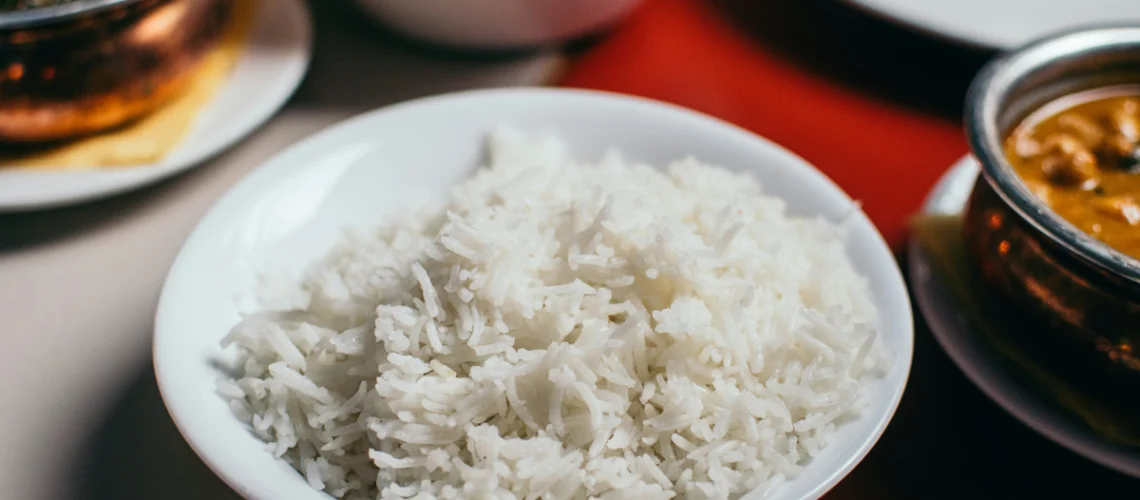Rice, a staple food for over half of the world’s population, can be an essential contributor to your daily nutritional needs. Understanding the nutritional value of uncooked rice is crucial for maintaining a balanced diet and making informed dietary choices. In this article, we’ll focus on the nutritional facts of two common types of rice: white short-grain and white glutinous rice.
Calories in an Uncooked Cup of Rice
A cup of uncooked rice, typically weighing around 185 grams, contains a substantial amount of calories due to its high carbohydrate content. A cup usually has approximately 675-685 calories for white short-grain rice, while white glutinous rice contains about 680-690 calories per cup. These values can vary slightly depending on the specific type of rice and its processing.
Nutritional Overview of Uncooked Rice
Rice, in its uncooked form, is a rich source of carbohydrates, providing the energy needed for daily activities. Besides carbohydrates, it contains proteins, a small amount of fats, and a wide range of vitamins and minerals. Here’s a closer look at the nutritional content of white short-grain and white glutinous rice:
| Nutrient | White Short-Grain (per 100g) | White Glutinous (per 100g) |
| Calories | 356 | 370 |
| Protein (g) | 6.5 | 6.2 |
| Total Fat (g) | 0.5 | 0.6 |
| Carbohydrates (g) | 80 | 81 |
| Dietary Fiber (g) | 1.4 | 1.0 |
| Iron (mg) | 4.4 | 1.5 |
| Magnesium (mg) | 25 | 21 |
| Phosphorus (mg) | 115 | 90 |
| Potassium (mg) | 115 | 100 |
| Thiamin (B1) (mg) | 0.07 | 0.05 |
| Niacin (B3) (mg) | 4.0 | 4.3 |
| Folic Acid (B9) (µg) | 5 | 4 |
Health Benefits of Rice
Rice can offer numerous health benefits, although it’s important to note this depends on how you prepare it. The high carbohydrate content provides the body with essential fuel, supporting everything from brain function to physical activity. These nutritional benefits are especially important for those on plant-based diets, as rice can be worked into most plant-based meals. The proteins in rice, though not as high as in other food sources, are crucial for muscle repair and growth.
Dietary fiber, found in varying amounts in rice, aids digestion and helps maintain a healthy gut. It can also contribute to heart health by helping to lower cholesterol levels. The B vitamins, including thiamin (B1), niacin (B3), and folic acid (B9), play vital roles in energy metabolism, helping to convert food into usable energy. They also support brain health, contributing to a reduction in the risk of cognitive decline.
Minerals such as iron and magnesium are critical components of a healthy diet. Iron is essential for the formation of red blood cells and the transportation of oxygen throughout the body. At the same time, magnesium supports muscle and nerve function, blood sugar control, and blood pressure regulation.
Incorporating rice into the diet meets basic nutritional needs and contributes to overall health and well-being.
Potential Health Considerations
While rice is a nutritious staple, it’s essential to be aware of potential health considerations, such as arsenic. Rice can absorb arsenic more readily than other crops, potentially leading to health risks over time if consumed in large amounts. To mitigate these risks, you should vary your diet with other grains like quinoa, barley, or bulgur. Moderation and dietary diversity are crucial to minimizing exposure to arsenic while ensuring a balanced intake of nutrients from different sources.
Cooking Tips to Preserve Nutrients
Specific cooking methods can be more effective than others to maximize the nutritional benefits of rice. Soaking rice overnight can help reduce cooking time and decrease arsenic levels. Rinsing rice until the water runs clear can also remove excess starch and surface contaminants. Cooking rice with a proper water-to-rice ratio and avoiding excessive washing post-cooking can help preserve its vitamins and minerals. These simple practices ensure that the nutritional quality of rice is maintained from the kitchen to the table.
Rice Nutrition Facts: Final Thoughts
Understanding the nutritional value of uncooked rice is essential for incorporating this versatile grain into a healthy diet. By being mindful of potential health considerations and adopting best cooking practices, rice can be a nutritious part of your meals. Embrace the diversity of rice and enjoy its benefits as part of a balanced diet, ensuring a wide range of nutrients for optimal health.
If you’re in the Colorado area and want delicious foods prepared with rice, check out our meal plans. We also deliver bulk groceries right to your door in the Colorado area.
Some of the Areas We Serve:
Other Nutrition Fact Articles:

